TLC Protects 40 Acres Near Umstead State Park in Historic Easement
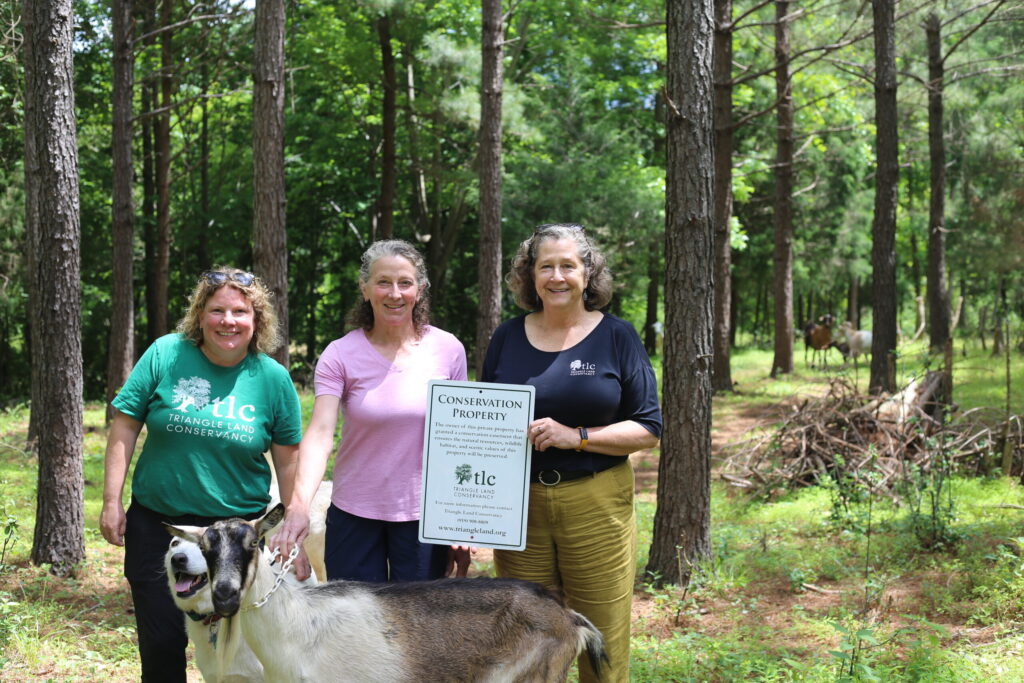
Walton Farm, one of Raleigh’s last large working farms, is now permanently protected through a conservation easement.
TLC Wins Governor’s Conservation Achievement Award

Triangle Land Conservancy was named Conservation Organization of the Year at NCWF’s 60th Annual Governor’s Conservation Achievement Awards, honoring its 42 years of impact.
Protecting the Magic in Orange County
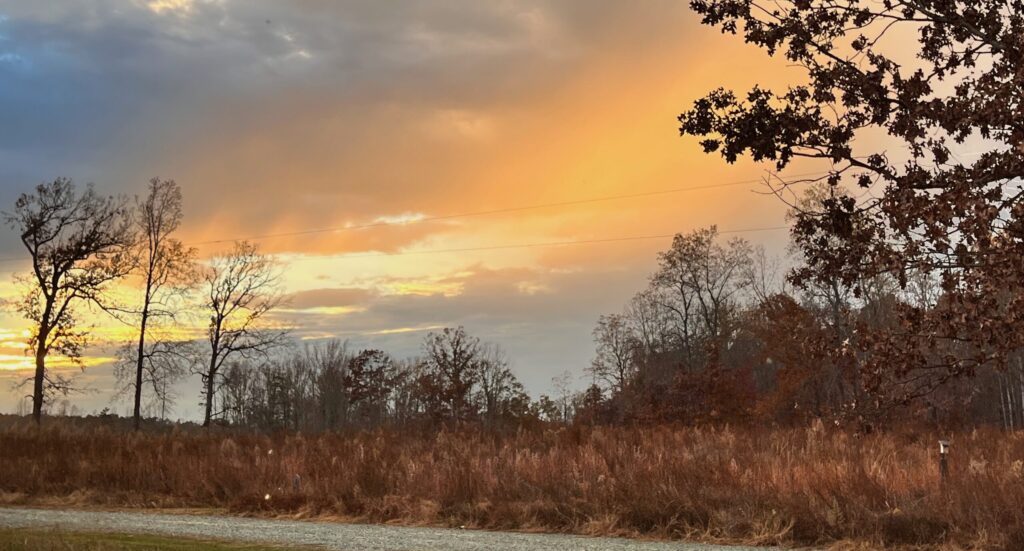
Bluestem Conservation Cemetery is now permanently protected—preserving wildlife habitat, honoring loved ones, and sustaining a place of peace for generations.
TLC Protects More Farmland in Chatham with County Support
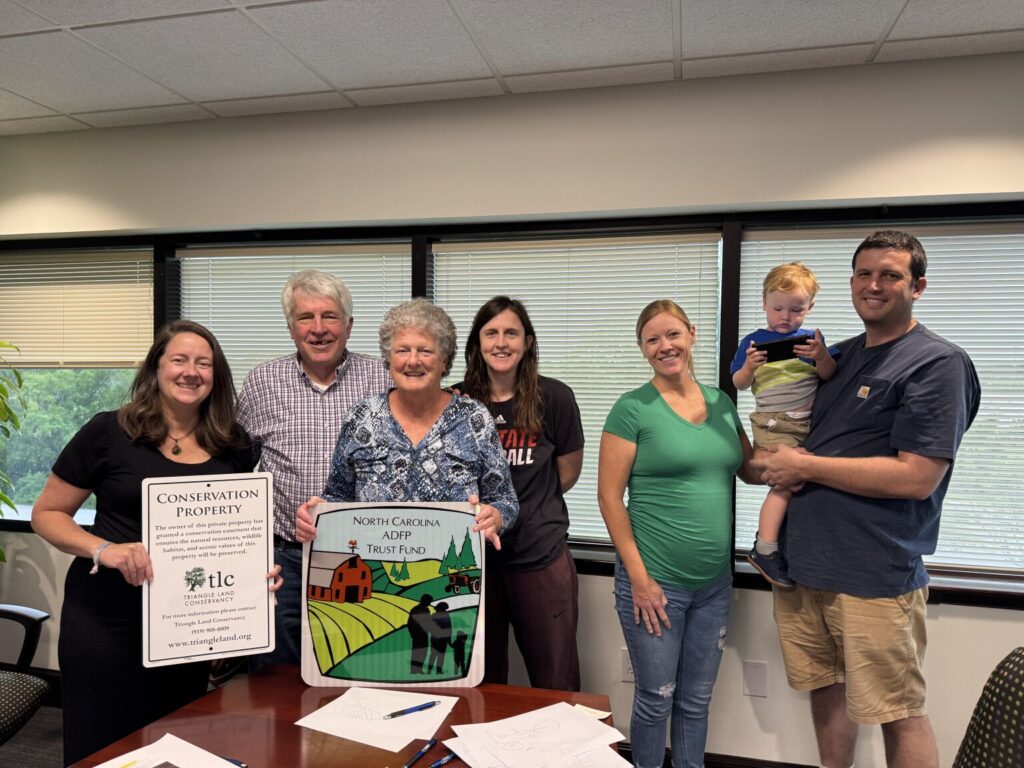
Triangle Land Conservancy is accelerating farmland preservation in Chatham County, protecting working lands like Bolton Leight Forest through local support.
Rooted in Community: TLC Hosts Inaugural Land & Harvest Festival

Triangle Land Conservancy’s first Land & Harvest Festival at Williamson Preserve celebrated local farms, conservation, and community connections.
TLC Surpasses Goal to Conserve 25,000 Acres of Land in the Triangle by 2025
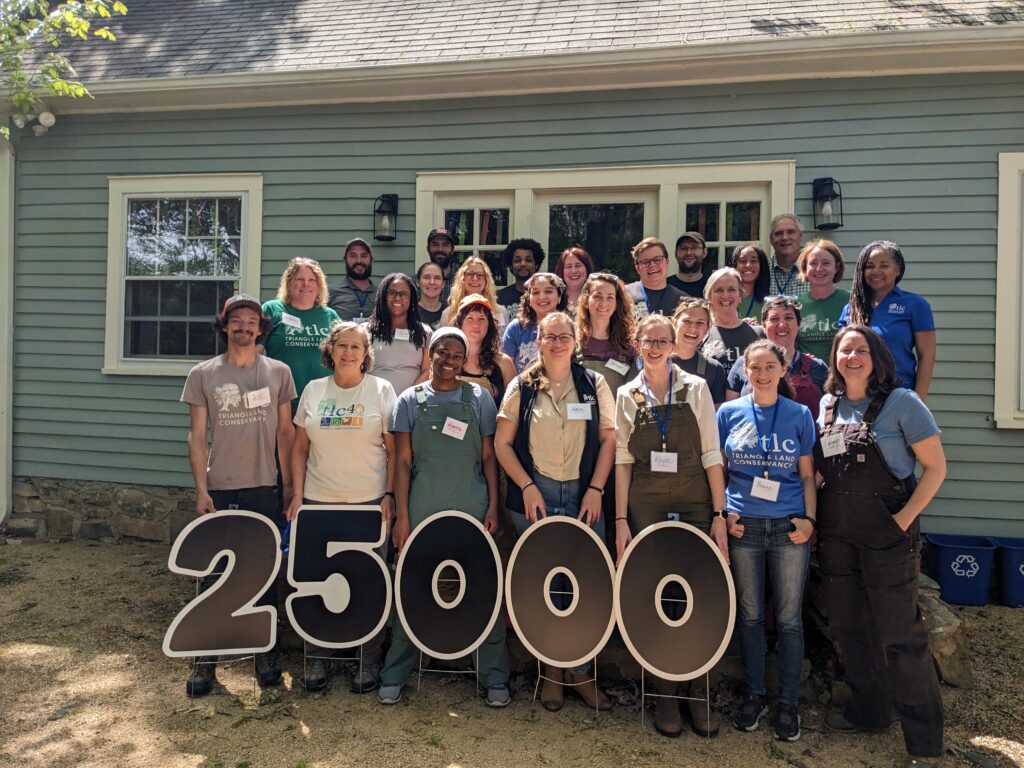
By Cara Lewis, Senior Communications Manager Triangle Land Conservancy (TLC) surpassed a strategic goal set in 2018 to permanently protect and steward 25,000 acres of land across the Triangle by 2025. As of April 1, 2024, TLC has conserved 25,035 acres. “Thanks to willing landowners, the state of North Carolina, partnerships with local counties and […]
Celebrating 2024 PINES Graduates and New Internships
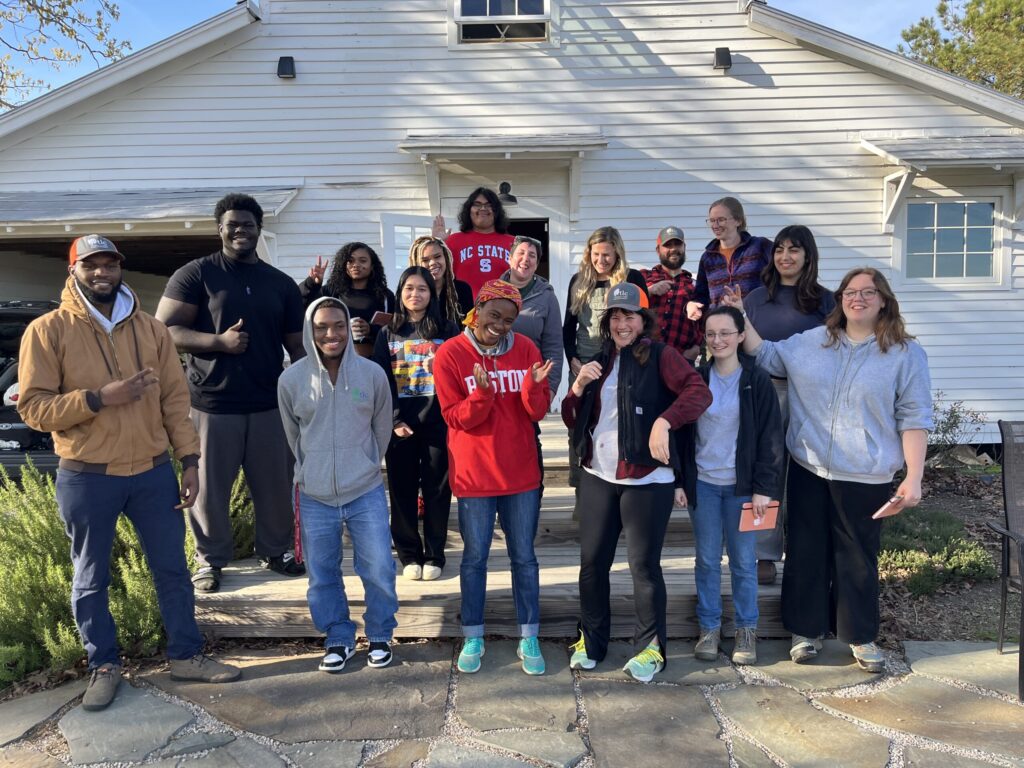
By Cara Lewis Pathways Into Natural Environments and Science (PINES) was created to establish opportunities for high school students to network and explore careers in conservation and natural resources. TLC’s PINES program returned this spring for its third year, welcoming 10 students from Knightdale High School (KHS) to learn about and explore the outdoors with us. This immersive […]
New conservation easement creates 303-acre corridor of protected land along Middle Creek
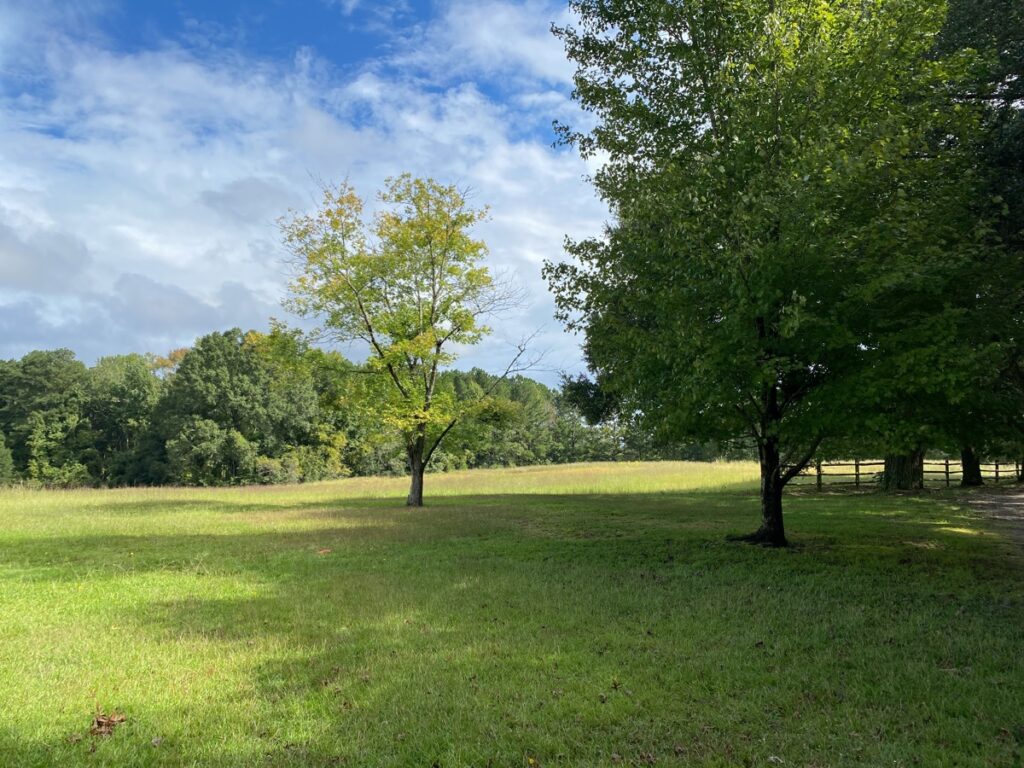
By Olivia Garcia, Communications Manager In November 2024, Triangle Land Conservancy partnered with the Hedges family to conserve 64 acres of historic farmland in Johnston County known as the Hedges Farm. This donated working lands conservation easement will protect vital farmland, forest, water resources, and natural habitats along Middle Creek. The conservation of this land […]
Mavis Gragg awarded Kingsbury Browne Conservation Leadership Award at Rally 2024

By Cara Lewis, Senior Communications Manager Attorney, conservationist, and former TLC board chair, Mavis Gragg was presented with the distinguished Kingsbury Browne Conservation Leadership Award at the 2024 Land Trust Alliance national land conservation conference held in Providence, Rhode Island. Named for the conservationist who inspired the Alliance’s founding in 1982, the award ranks among the […]
Representing the Triangle at Rally 2024 National Conservation Conference

By Cara Lewis, Senior Communications Manager A record 2,350 people descended on Providence, Rhode Island in late September to attend Rally 2024, the national gathering of the land trust community hosted by the Land Trust Alliance. The alliance represents approximately 1,000-member land trusts and affiliates supported by more than 250,000 volunteers and 6.3 million members […]
